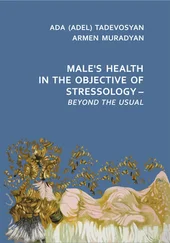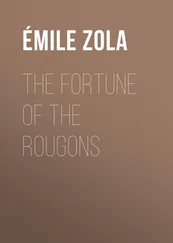Ann had lost completely her earlier shyness, the doubt with which she started a painting, the school-girl fear with which she awaited others’ reactions. Now she had an unerring gift for placing a painting, for using connections, for sensing in a new acquaintance a potential client. “Client” was the word that recurred most often in their shared language. The word’s double meaning frightened Paul.
“What kind of client?” he asked her once with brutal directness, staring her in the eyes. She shuddered beneath the horrible outrage, as though he had slapped her, and burst into moving, despairing tears, which he barely managed to assuage, begging her forgiveness, full of remorse, yet pleased by such sincere, almost childlike weeping, the refutation of his suspicions and fears.
Some days Ann was unreachable. His insistence on seeing her ran up against a single response, which she uttered slightly sententiously, raising it like a shield: “My painting comes first!” Nothing protected her better, nothing hid her more completely.
“I’m not available this evening. I have a business meeting: a client to whom I’m trying to sell Blue Flowers .”
She had acquired the habit of meeting clients at her home or downtown, at a restaurant, at a table in a bar, and not at the exhibition, where she set foot rarely and only in passing to smoke a cigarette, to exchange a few words, dressed in her street clothes, without taking off her hat, as though just visiting. Paul had tried to persuade her that her prestige as an artist dwindled through this excessive familiarity with the public.
“Try to understand, dear Ann, that I’m not speaking to you as a jealous man, but rather as a concerned friend. An artist doesn’t have the right to make to the public the concessions that you make to your purchasers. She has to be less available, prouder, more vain, more solitary.”
She listened with attention and seemed to agree with everything, to understand everything; but when he moved on from general considerations about the obligations of a “true” artist to concrete proposals (and here the impartial friend could not entirely conceal the jealous lover), and when he asked her to cancel her scheduled meeting by phoning the fan who, if he really intended to buy Blue Flowers, had only to enter the Dalles Gallery two days from now, between eleven AM and noon, she refused to listen to him any longer and cut him short: “What? You want me to destroy my career?”
“To destroy my career” was an expression that was beginning to appear for the first time in Ann’s language. Paul knew this language too well not to be upset by her changes of vocabulary. Where did these new words come from, which had suddenly heaved into sight in their conversations, like so many echoes from a life he wasn’t familiar with and of which he wasn’t aware until she carelessly let the words slip? In the early days, listening to Ann speaking had been a pleasure full of surprises. At first he had thought that she was highly loquacious, but as time went on he had observed that her volubility was composed more of gestures and smiles, alternating with short exclamations and short silences, which lent her conversation an air of perpetual excitement.
“What strange syntax you have, dear girl!” he used to say, amused by the structure of her sentences. Something of his old obsessions from when he was a student of Latin awoke in him to study the grammatical snippets of their conversation.
She spoke in simple sentences, yet complicated them with a shower of interjections and questions — “yes?” “no?” “you see?” “you know?” “you want to?” — like a series of flats and sharps in a scale with variations, which made her simplest stories into thrilling affairs in which her tone rose and fell, the inflection of her voice changed, and her gaze suddenly shifted. There was a surprised, astonished quality to all of her conversation, as though she had struggled with retorts that only she heard, and to which she would have to respond in turn, like a chess player involved in many matches at once. And, like a chess player who was in that confusing situation, she resorted to typical movements, such as waiting — the meaningless shifting of a pawn, moving a rook onto the front lines. She also had a few set phrases, which she repeated almost mechanically, since they said nothing and were at hand, like habitual old gestures that had long ago lost their original intention: “Well and for all that,” “Everything’s possible,” “How am I supposed to know what to think?”
Ann took up with ease words and expressions that she happened to overhear, and which from then on became habitual parts of her speech, initially in jest perhaps, then later because she truly couldn’t stop herself from remembering them, until they established themselves definitively in her personal jargon. In Sibiu she had stopped a passerby one morning to ask him whether the Bruckenthal Museum, where she wanted to go, was far away. “Far, yeah, but no-who knows how,” was the reply — and this type of approximation amused Ann so much that she repeated it for several consecutive days, on all possible occasions. The food was good, “but no-who knows how,” the bathwater was hot, “but no-who knows how,” the night sky was starry, “but no-who knows how.” At first she said this laughing, as though underlining the words, but with time her ironic intention dissolved, even disappeared completely, while that “but no-who knows how,” which for a while had a certain commemorative value (as if she were saying indirectly to Paul: “You remember, in Sibiu…”) became not only one of her more worn phrases, but her preferred way to lend nuance to her opinion, to express her reservations.
At the beginning, in the first days of their love, it had been one of their reciprocal pleasures to discover in each other certain physical or verbal tics, which for other people, who had known them for longer, had become imperceptible from custom or repetition, but which, observed for the first time, had something utterly unexpected.
“How strangely you frown!” Ann had observed in the first days. She had tried to imitate him, leaving her left brow lowered and raising the right, tightly arched, something which at first she did not succeed in doing except by cheating a little and opening wide her right eye with two fingers, as though she wished to fix a monocle in her socket.
It was the sum of petty gestures, which at first she had observed jokingly in him, with an ironic tenderness, and which she imitated with laughter, as though she were trying to wean him of them, which, with the passage of time, entered her own habits. Paul watched, initially with indifference, or rather with amusement, but later touched and surprised, this unthinking transmission of words and gestures that he rediscovered in Ann’s language, slightly modified by her movements or pronunciation, as if they had been adapted to her vocal register, like a man’s aria rewritten for a soprano voice. They were the same words, the same gestures, yet they often conserved a strange air, as if they had been pressed onto Ann’s speech with special type, transferred into her sentence like words read in a foreign language, like a proverb in quotation marks, until these last lines of resistence also fell, while the gesture or word that until then had been a kind of neologism for Ann, was permanently incorporated into her current vocabulary. She made Paul aware for the first time of the persistence with which he repeated expressions of affirmation or negation: “Sure, sure,” “Not once, not once,” “Out of the question, absolutely out of the question.”
How little I watched myself , Paul had thought, if I was able to talk that way for years without even being aware of it. It took Ann to come and observe me. Sometimes, in the middle of a sentence, when that double, “Sure, sure,” came back, she underlined the fact with an explosion of laughter.
Читать дальше












